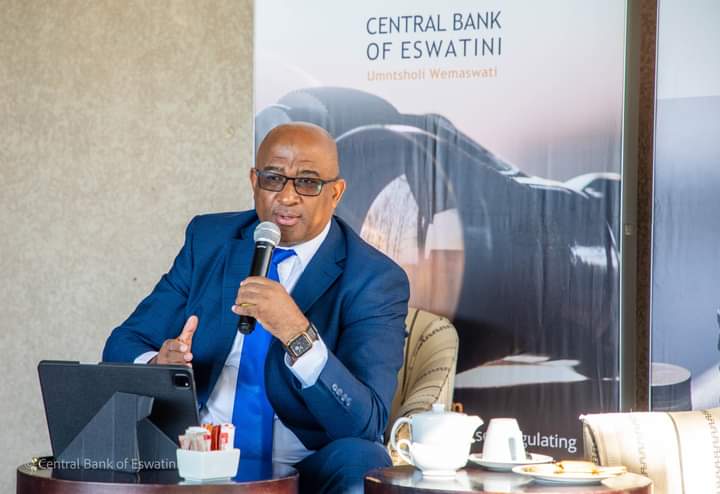By Delisa Thwala
Headline inflation has remained unchanged from the previous month at 4.1% in April 2024.
This and more is contained in the monetary policy statement released by the Central Bank of Eswatini (CBE). Governor Dr. Phil Mnisi said the country’s annual consumer inflation remained unchanged from the previous month at 4.1 percent in April 2024.
“Decreases were observed in the price indices for; ‘food’ which declined to 3.7 percent in April 2024 from 4.2 percent in the previous month; housing and utilities which slowed by 1.2 percent to 6.6 percent in April 2024, and clothing and footwear which fell to 3.9 percent in April 2024 from 4.7 percent in March 2024,” he said.
ALSO READ: South Africa’s path to inflation…
On the contrary, increases were observed in the price indices for; transport services which grew by 2.7 percent, up from 1.2 percent in the previous month, and restaurants and hotels which grew by 6.3 percent to record 19.3 percent in April 2024.
Mnisi further said the Bank revised down its short to medium-term headline inflation forecasts to 4.50 percent (from 4.91 percent forecasted in January 2024) for 2024, 5.13 percent (from 5.21 percent) for 2025, and 4.92 percent (from 5.37 percent) for 2026.

Risks to the inflation outlook include elevated crude oil prices, a weaker exchange rate, and an increase in administered prices, amongst others.
Meanwhile, the policy further states that banks are expected to maintain the prime lending rate on loans extended to individuals and businesses unchanged at 11.0 percent until the next monetary policy meeting.
Worth mentioning is that credit extended to the private sector rebounded from two consecutive months of suppression and grew by 3.3 percent month-on-month to E19.3 billion at the end of March 2024.
ALSO READ: High inflation means children go…
Credit extended to the business sector amounted to E9.7 billion at the end of March 2024, reflecting a growth of 5.4 percent over the review month, and credit extended to the household and NPISH sector grew by a marginal 0.1 percent over the month to close at E8.5 billion at the end of March 2024.
The banking sector’s non-performing loans (NPL) rose by 2.5 percent month-on-month to close at E1.1 billion at the end of March 2024.
As of May 24, 2024, gross official reserves stood at E8.2 billion equivalent to an import cover of 2.3 months.
As of the end of April 2024, total public debt declined to E33.4 billion, from E34.4 billion recorded in the previous month. The current level of public debt is equivalent to 36.0 percent of GDP.
The Bank will continue to monitor international, regional, and domestic developments that influence the movements of domestic inflation and will act appropriately in line with its mission to foster price and financial stability that is conducive to the economic development in Eswatini.


